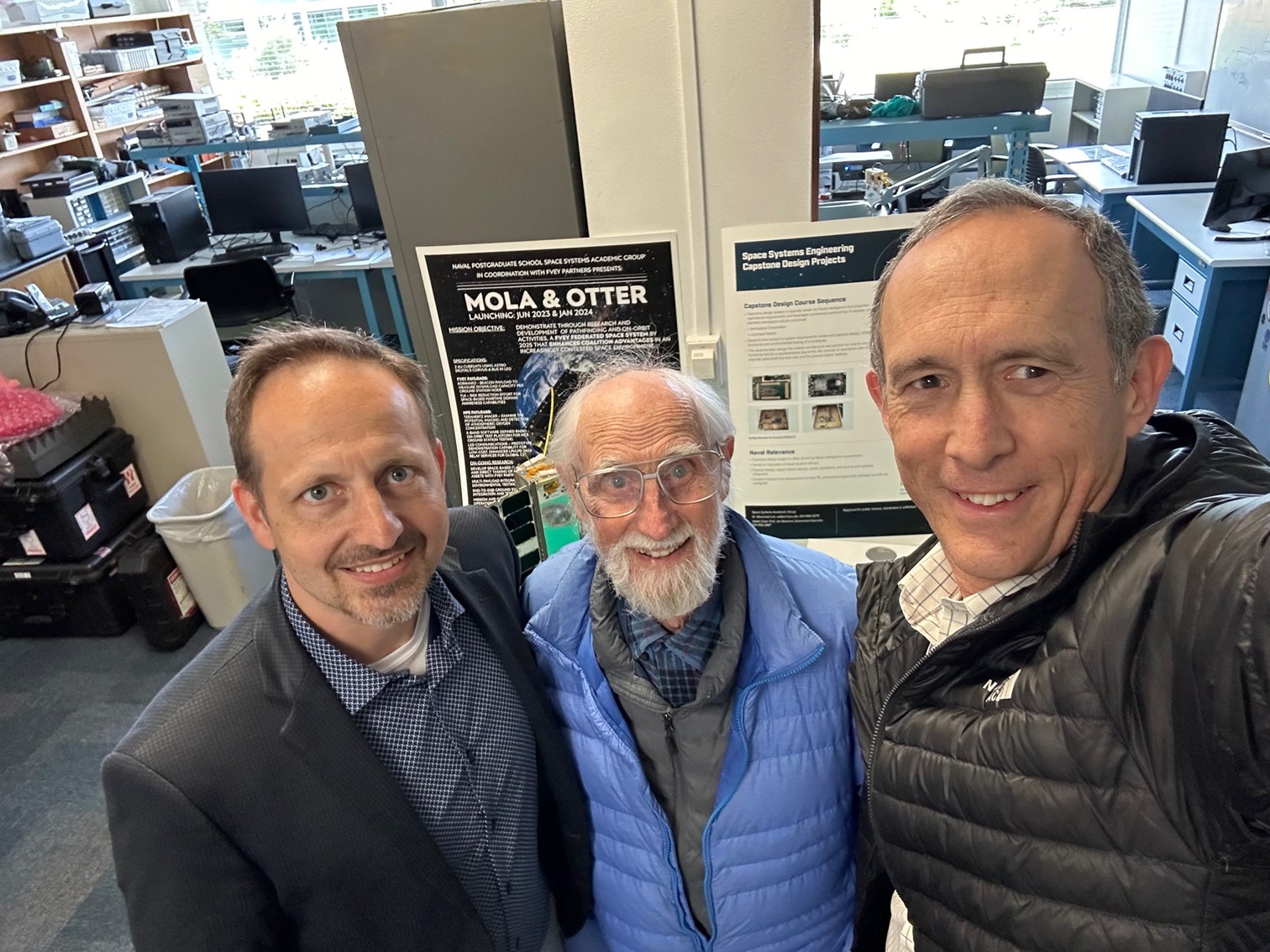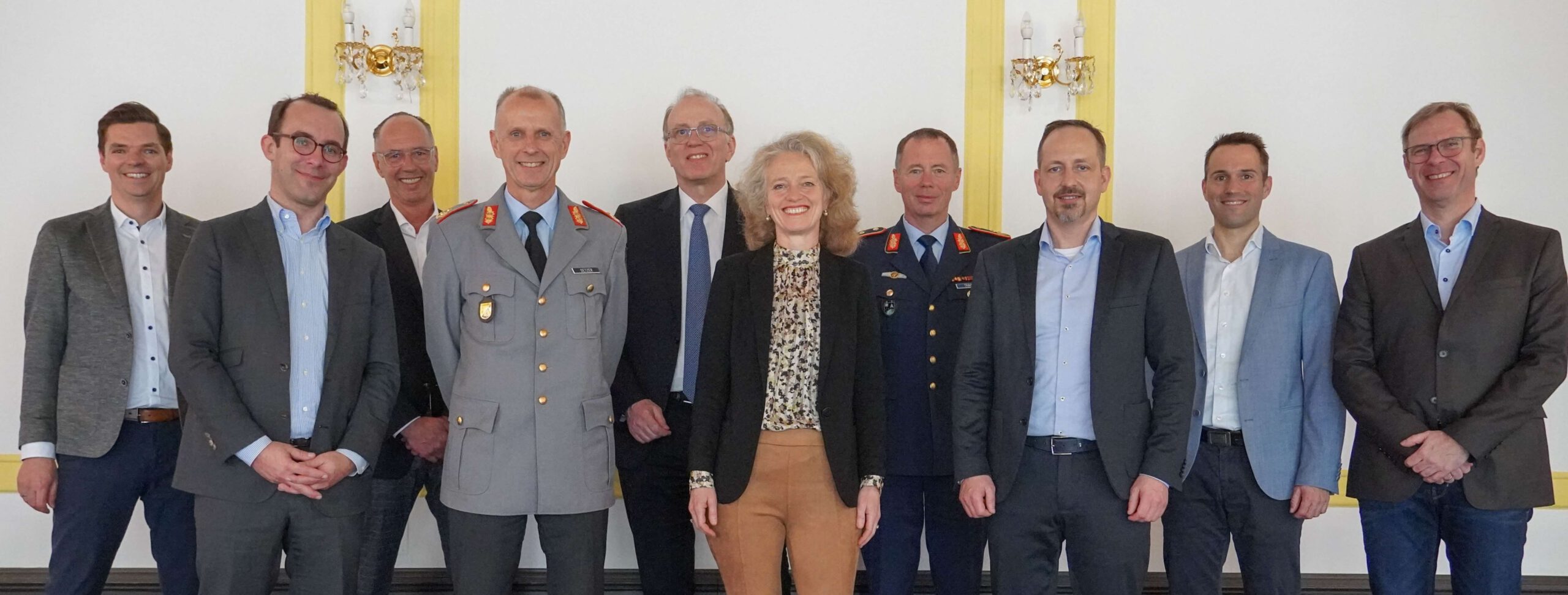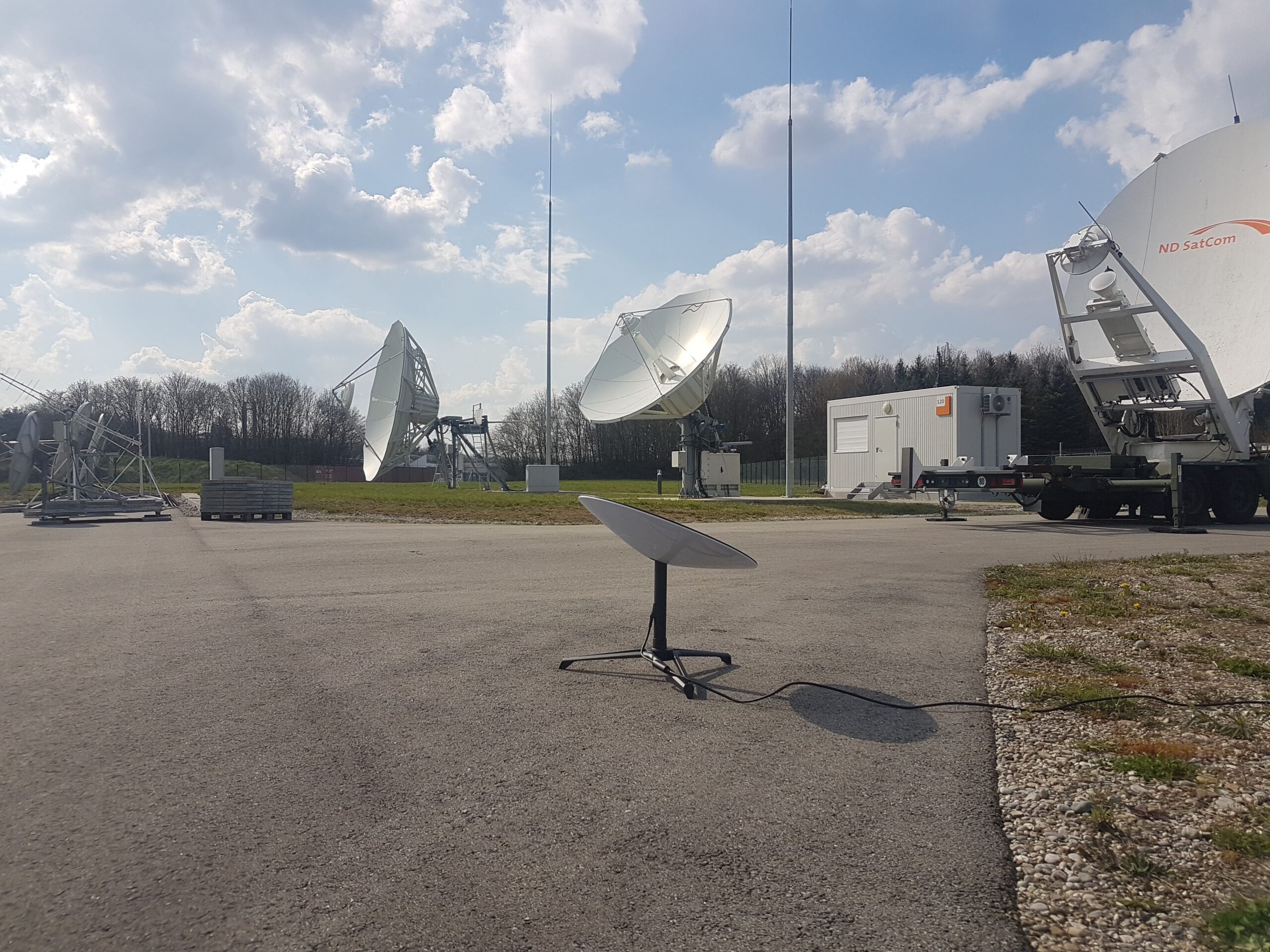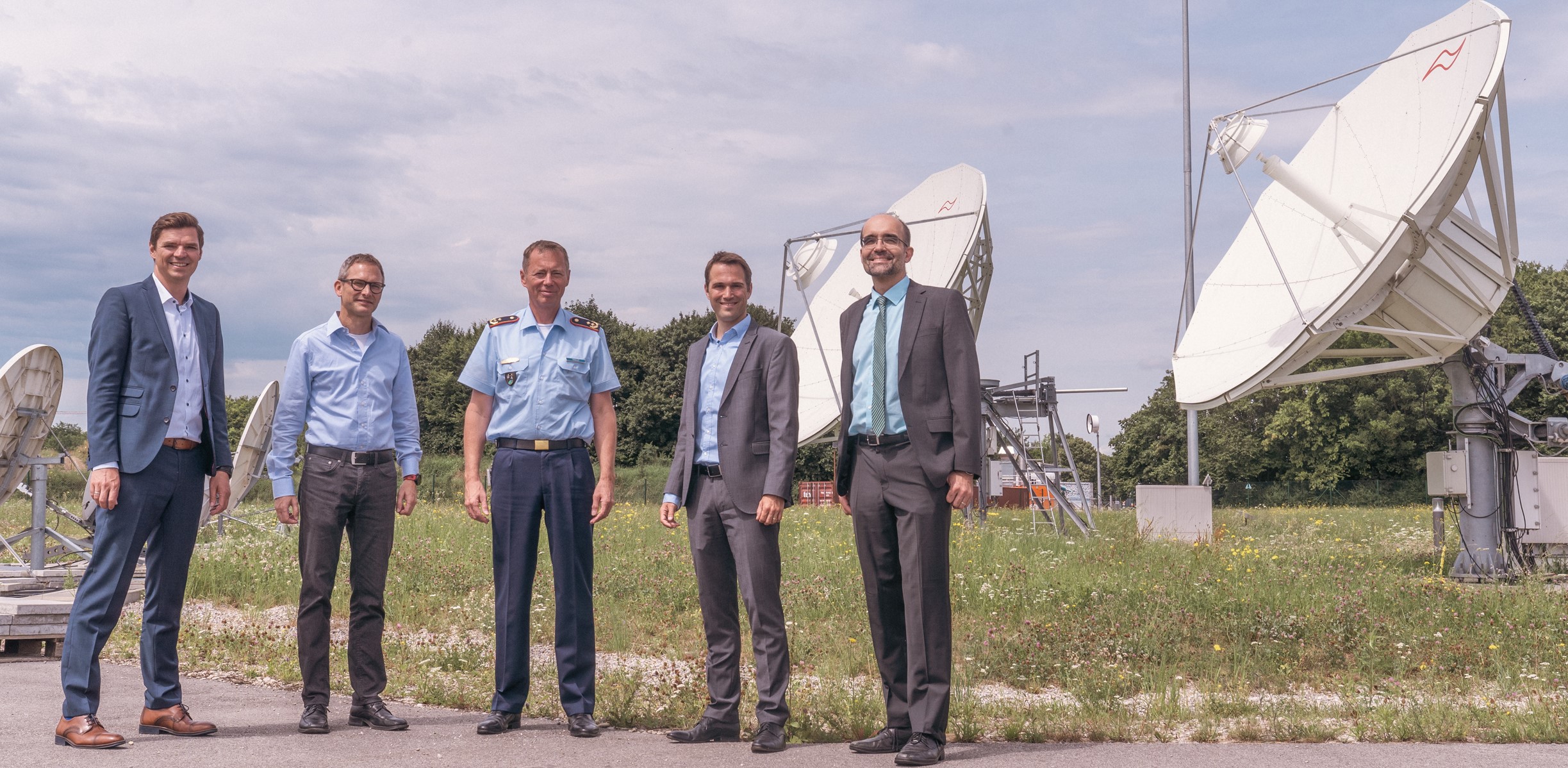As a Recurring Visiting Professor, Andreas Knopp once again attended the Space Systems Academic Group of the Naval Postgraduate School (NPS) in California. This time, the focus was on the small satellite project SeRANIS.
Experts from the Naval Postgraduate School (NPS), who recently completed the successful launch of the small satellite MOLA, were involved in the Critical Design Review (CDR) of SeRANIS in March. The evaluation was crucial in taking the SeRANIS project to the next level. Therefore, the focus of the current research visit was specifically on the innovative small satellite project and the joint use of the NPS ground station network, known as the Mobile CubeSat Command and Control (MC3) network.
“The special thing about the MC3 network today is that it is already home to American universities, civilian institutions, industry partners, and governmental agencies.”, says Prof. Andreas Knopp. This project, which started at the NPS in 2011 and is funded by the Department of Defense, is a cornerstone for supporting space missions in the field of signal intelligence.
SeRANIS as a Driving Force for International Cooperation
The MC3 network is currently used exclusively for projects of the Five Eyes (FVEY) alliance, consisting of the USA, Canada, New Zealand, the United Kingdom and Australia. In order to pursue common interests in the field of signal intelligence, efforts have been underway for several years to expand this alliance to include Germany and France.
“Even though we are still at the beginning, the SeRANIS project seems to be the perfect way to integrate Germany into the alliance with the unique small satellite infrastructure here at UniBw. Signal intelligence will be one of the driving topics in the coming years, and small satellites will make their contribution. Therefore, it seems quite obvious that SeRANIS should act as a role model to be exploited in future mission for the Bundeswehr as well as in the NATO context. Strategic partnerships on all operational levels including academia are thus essential.”, says Prof. Knopp.
A long-term Partnership
The collaboration between the NPS and the University of the Federal Armed Forces in Munich has a tradition that goes back to the early days of space research. Almost five decades ago, Prof. Rudolf Panholzer, now 95, initiated this cooperation, which is still groundbreaking today.
The SeRANIS project not only stands for technological innovation, but also for strengthening international partnerships in the space sector. By continuing to work closely together, the aim is to promote a future in which space cooperation across national borders is a matter of course.






